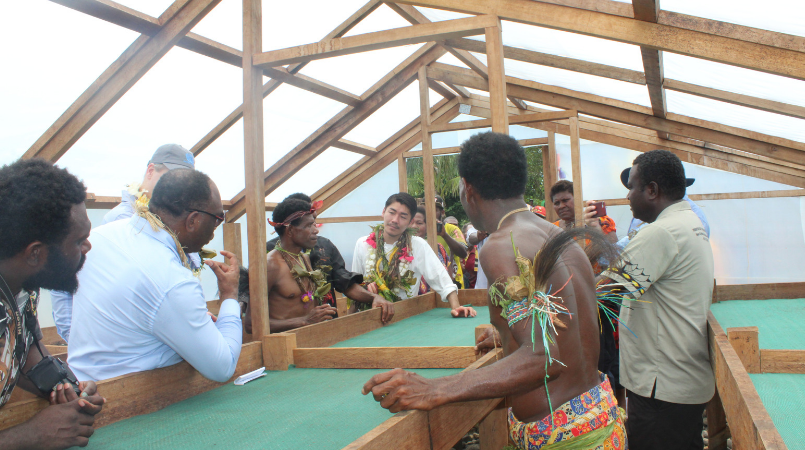
The communities of Pomio District, East New Britain, are pushing forward with efforts to export high-grade cocoa to Japan.
The launch of the first of seven solar dryers over the weekend marks another milestone in helping farmers continue to meet the international standards required for global confectionary markets.
With an initial shipment of 500 kilograms of cocoa planned for delivery to Japan in the coming weeks, the solar dryers demonstrate how much needed incomes can be generated in an environmentally sustainable way.
This has been made possible under an innovative public-private partnership that has drawn together a consortium of partners. These have included the member for Pomio District, Elias Kapavore, Government through its Conservation, Environment and Protection Authority (CEPA), the East New Britain Provincial Administration, Japanese company Tachibana and Co., the Organisation for Industrial, Spiritual and Cultural Advancement, the Cocoa Board, and the United Nations Development Programme (UNDP) all of whom have contributed funding and provided technical assistance to communities for this work.
This work has resulted from broader conservation initiatives in the area and grown from an interest in supporting communities achieve more sustainable livelihoods.
This exciting development is a first for the communities of Pomio. Looking forward, these communities have started producing chocolate with hopes it will one day be readily available across Papua New Guinea and beyond.
UNDP’s Resident Representative to Papua New Guinea, Dirk Wagener, said: “It is important to realise how important these opportunities are for communities in Papua New Guinea. What they demonstrate is that with commitment, people can pursue amazing opportunities that support their livelihoods while protecting and conserving the environment.”
The use of these solar dryers will provide dried cocoa beans with a smoother taste and avoid the need for other means of drying such as woodfire. This approach helps improve the quality of the final product and ultimately its value.
“We are all excited by this work. The dyers are constructed locally, they are cost effective and easily maintained,” said Wagener.
“This adds to the sustainability of these efforts. UNDP has been a proud partner. The leadership demonstrated by the Hon. Elias Kapavore and the support offered by the Provincial Administration and District Development Authority show what innovative thinking can achieve.”
The project has been funded by the Global Environment Facility (GEF) with contributions made from the Pomio District Support Improvement Program. It has been implemented by UNDP in partnership with CEPA and the Pomio District Development Authority.
